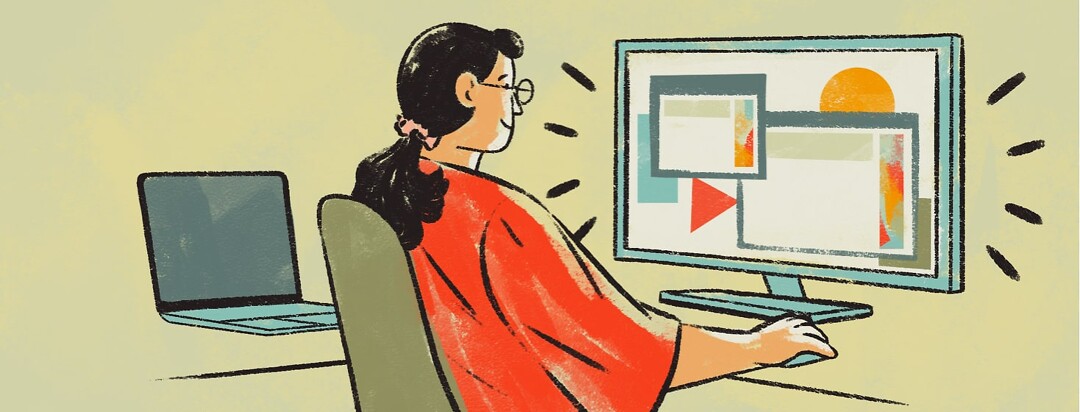Change Is Hard
Shortly after being diagnosed with macular degeneration, the reality sets in that the way we have done things for years will have to change, possibly in the near future.
How can I do ___?
With loss of sight, how will you cook and clean? What if you can no longer drive? How will you get groceries, run errands, or visit friends and family? What about doing simple tasks such as home maintenance or reading? How will you maintain a quality of life as your vision declines?
All realistic questions with 1 simple answer: change!
Change isn't always easy
Even though the answer is simple enough, making those changes isn't always easy. The hardest part is making that shift in our minds about changes that may be needed. Doing things differently isn’t always bad. In some ways, it can even be an improvement over what we’ve been doing.
Granted, it will feel uncomfortable at first, as all new things feel awkward initially; over time, though, the new way of doing things will start to feel more natural. However, there is a way to make change easier.
Take it slow
Change is simpler when it’s done gradually over time. For most of us, that is also how our vision begins to deteriorate with macular degeneration. There is no reason to abruptly turn your world upside down.
Start with small changes and gradually add more as needed. Most of us start with having various magnifying glasses handy and a magnifying mirror in the bathroom; these sure make life easier. Making sure to have lots of bright light is also helpful. These minor changes will make a world of difference and are easy to make.
Finding alternatives
You can ease gradually into the bigger changes, such as a larger smart TV, a larger computer screen or tablet, and adjusting your driving habits to accommodate changing vision. I no longer drive at night, and I limit driving alone to a new destination where reading small road or street signs could be a challenge.
Eventually, I may need to stop driving, and more changes will be required, such as relying more on friends and family. I’m also finding there are many other options, such as ride-shares (Uber or Lyft) and transportation offered to seniors in the area.
What about hobbies?
That’s a tough one! It can be extremely difficult to let go of hobbies that require good vision. I had to face giving up portrait drawings, but I have to admit, I finished portraits of my grandchildren much more quickly once I understood the urgency of getting them done sooner rather than later. Who knows if I would have ever completed them had I not been concerned about being able to see well enough to draw! I felt inspired to finish them after my diagnosis.
And I have already found another hobby to replace my art — writing! Writing is something I can continue to do for a long time. In the worst-case scenario, which may never be as severe as I imagine, I can always talk into the computer microphone instead of typing the words.
Not changing is not always an option
Resisting change is often the hardest obstacle to overcome with a macular degeneration diagnosis. We want things to remain the same. We want to take the easy way out, but the easy way is only easier temporarily. Vision changes will necessitate changes in our lifestyle — some minor and some major. The sooner we can wrap our minds around what changes need to be made, the better.
I’ll end with this quote from Wayne Dyer: “If you change the way you look at things, the things you look at change.”
We can make it harder by choosing not to change, OR choose to change - Pick your hard!💜

Join the conversation